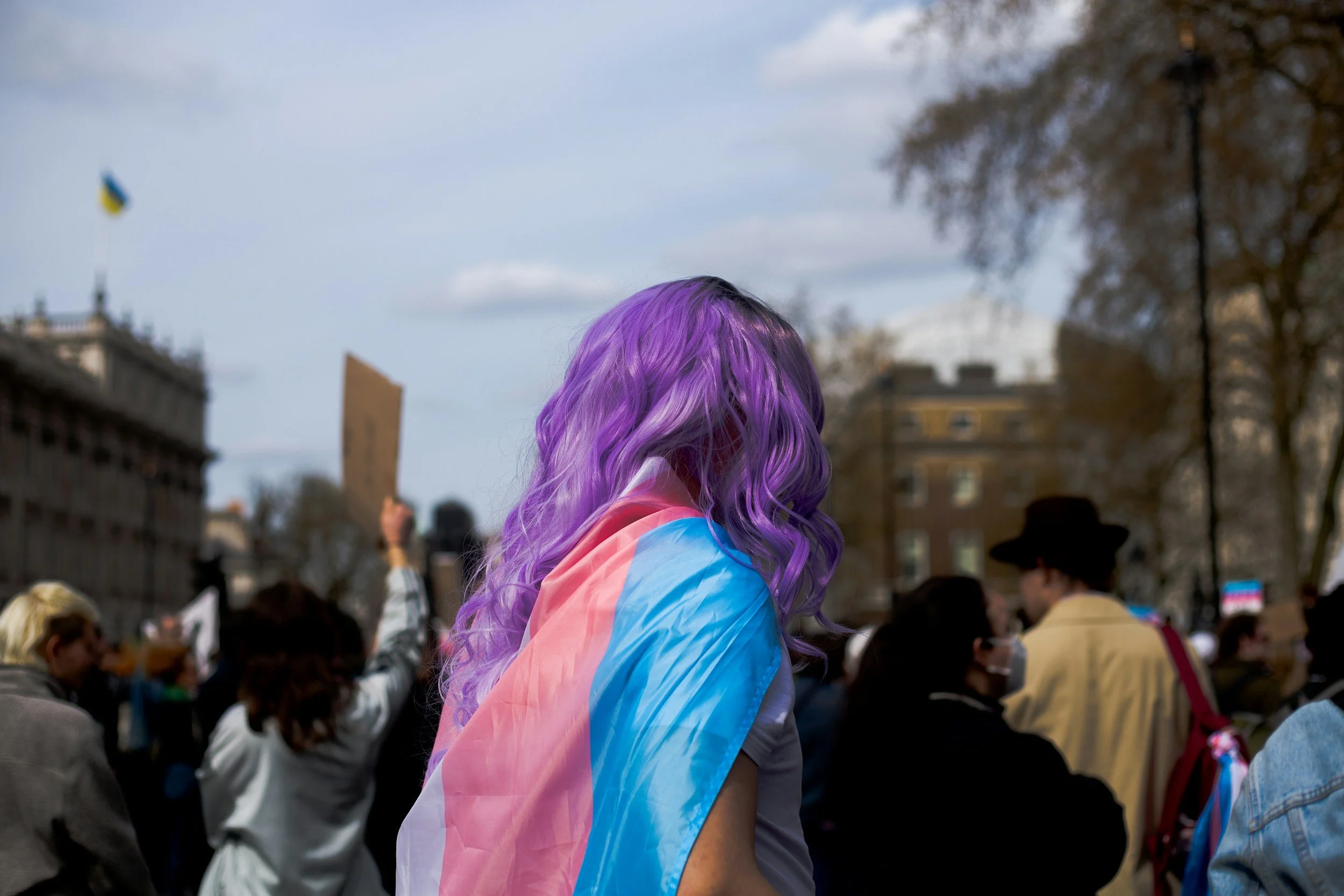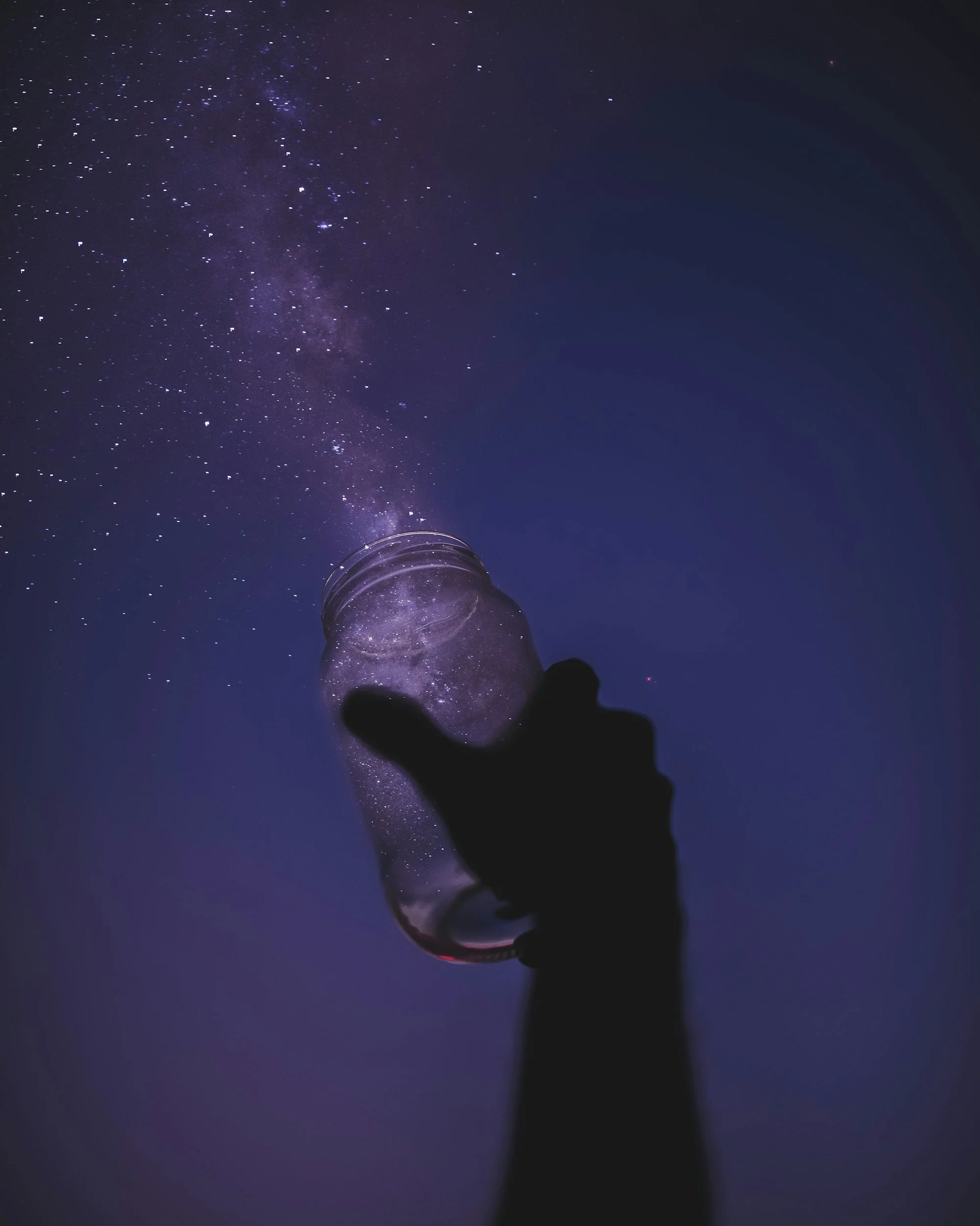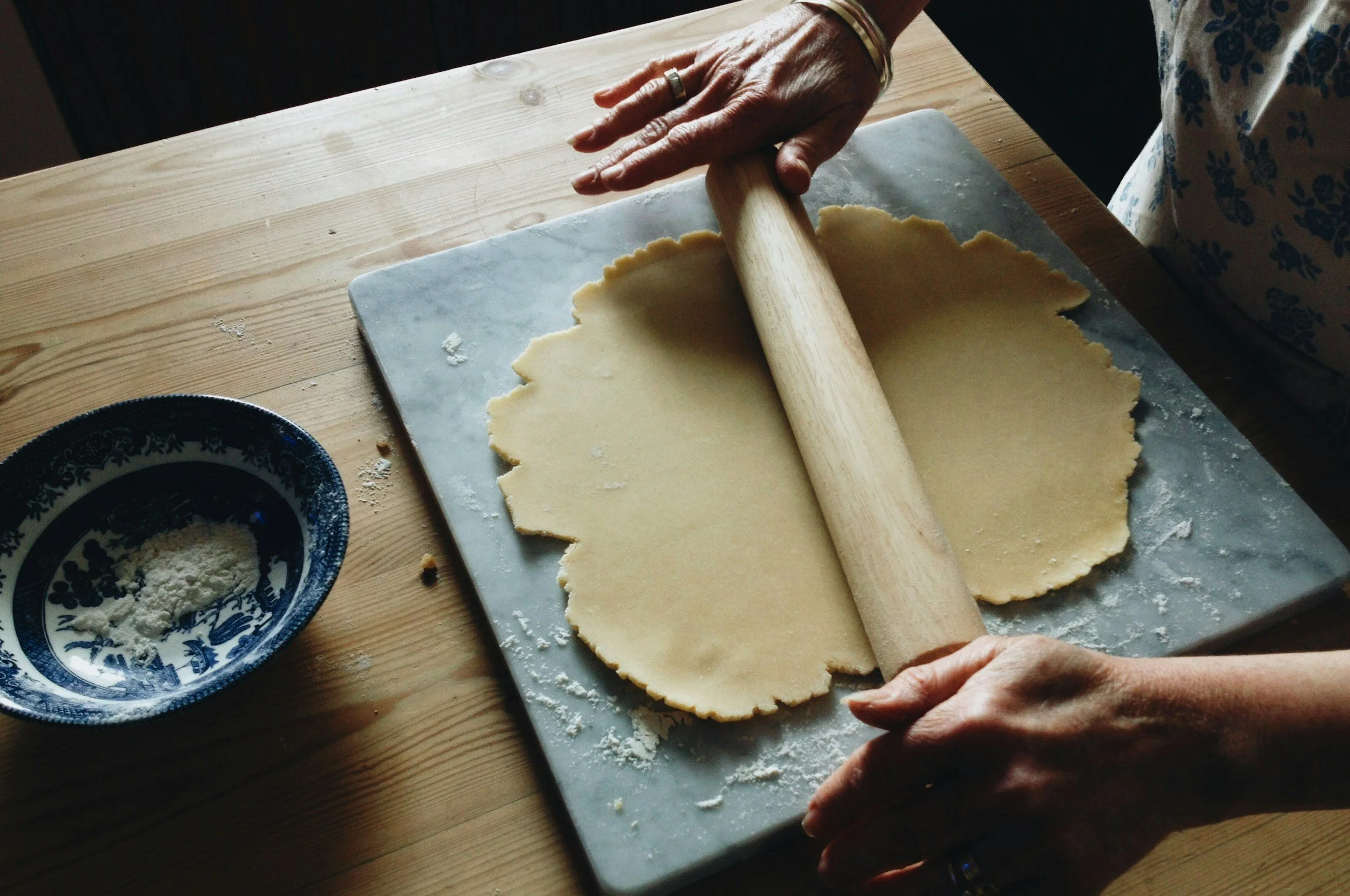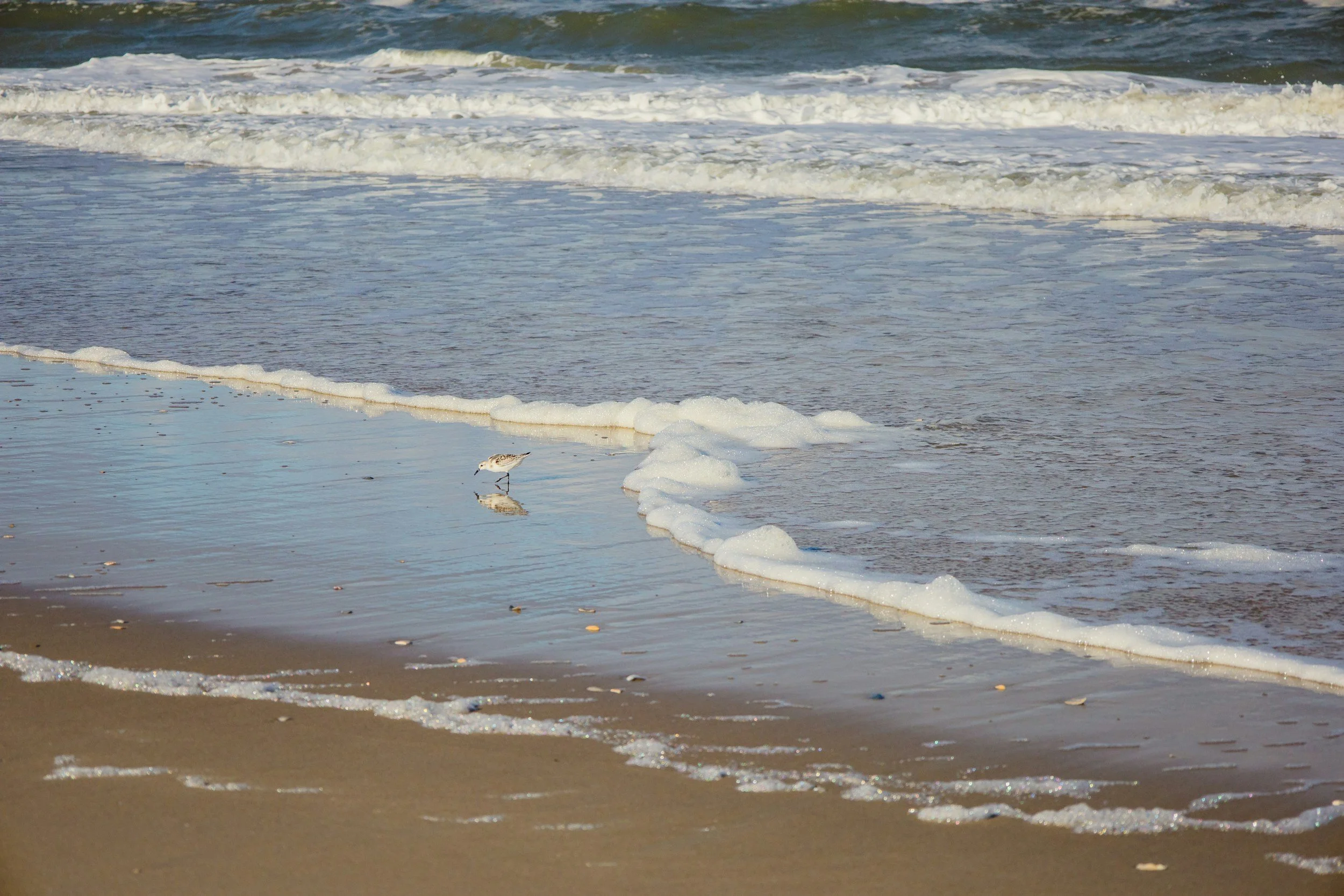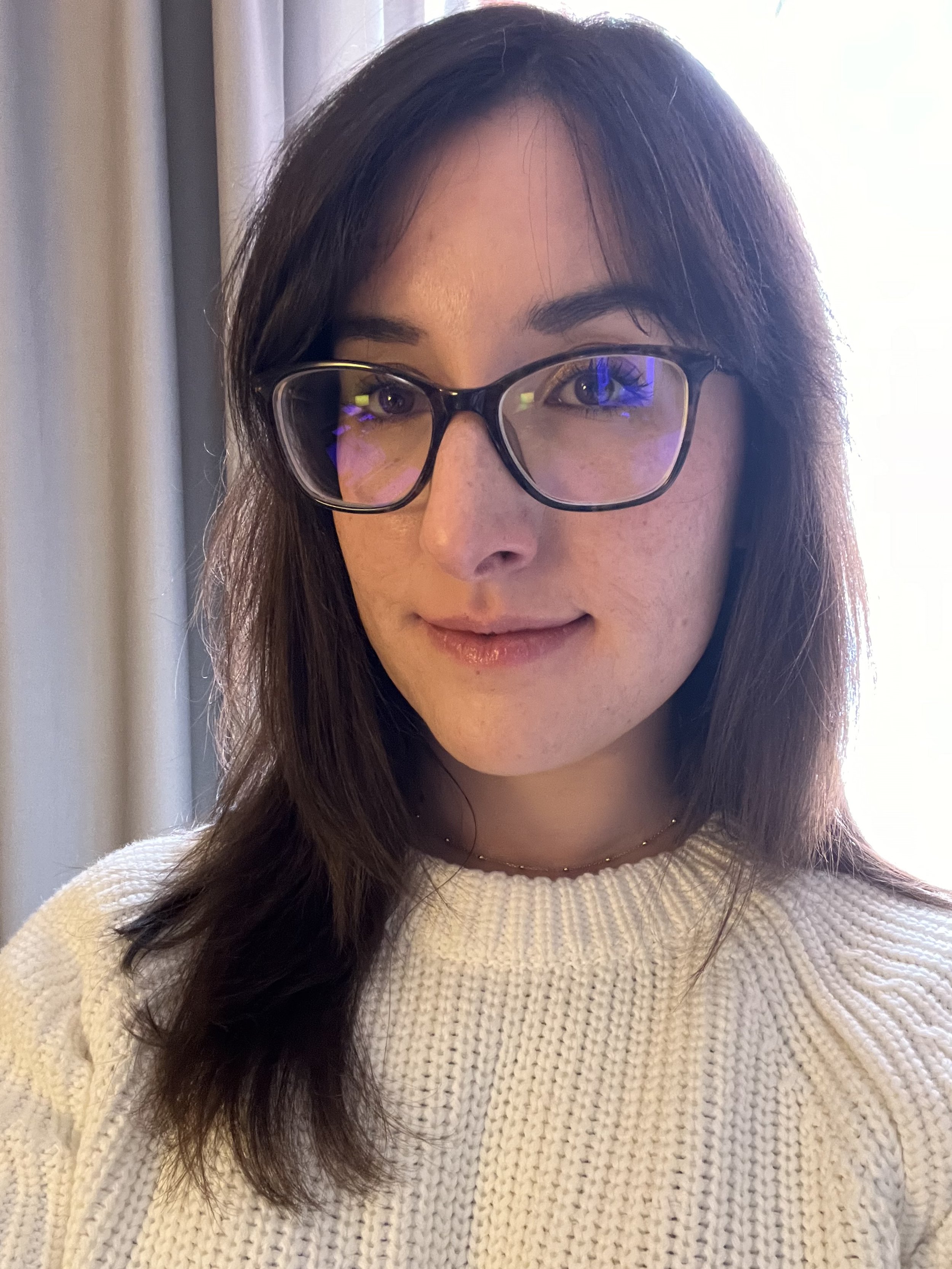Trespasser
When I realized that I probably shouldn’t be there, at your funeral, it was too late to leave. I was sitting alone in the center of a cushioned pew halfway back, picking at my cuticles in my lap, too self-conscious among strangers to put my fingers to my mouth and chew. The little chapel was sparsely filled. It seemed I was one of the few who’d found out about the service, or else, perhaps no one was meant to come who had not been asked. When I arrived, I had expected a large crowd to disappear into, or perhaps an old classmate to cling to, but neither were found. I had not gotten in line, to file past where you rested. Instead, I ducked into a pew and sat down, to hide, to gather my thoughts, wonder if I should leave or stay, try to shake off the feeling of a spotlight on my back. Being there felt like some kind of transgression, though I only meant to pay respects.
I came because your heart had stopped. Your short obituary had not said why. Classmates whispered about it online: a genetic condition; a lightning bolt out of nowhere; the inevitable result of a bad habit. The last conjecture would explain the dark cloud that seemed to hang over the few of us gathered in the hilltop church, all stucco and timber and stained glass, old world rural charm hosting a timeless tragedy. Too beautiful, I thought, when I pulled in on that sunny summer morning; give me soulless cinder blocks today, a treeless city lot. This day called for a colorless sky. On a wet, gray day, I might not have come, and I was beginning to think that I shouldn’t have.
Sickly instrumental hymns crackled weakly through the speakers as we waited for the service to begin. I watched the slideshow of photos cycle across the screen at the front of the sanctuary, a too-short life story. I saw photos of you younger than I had ever known you, and almost as old as you would ever be. Between the shoulders of the other mourners, as they shifted in their seats or shuffled before your casket, I could see slips of white satin, a bright halo. When a wider gap appeared, I caught glimpses of your angular face, your chest and hands, being hungrily devoured by the eyes of your parents, where they sat vigil in the first pew. You were their only child.
I met you in yoga class, the first year it was offered at our high school. But I had seen you before, many times. I cannot remember the color of your eyes, but I remember the curtain of your brown hair, your pointed chin, the way your black tee shirts hung from your wide shoulders as though from a wire hanger. I remember your thin arms, circled protectively about the softly curved hips of your beloved. I’d seen the two of you folded together in your circle of friends, stealing kisses, when I got off the bus in the morning and made my way past your usual spot outside the cafeteria. I’d seen you plodding down the halls in your wide-legged pants, like a black-sailed ship parting the waves of students, and something about you had tugged at me, though we’d never spoken, and I was two years ahead of you. But then, yoga class, the fall of my senior year: an introduction from a mutual friend, and there you were, soft spoken, with kind eyes twinkling down at me from far over my head. On alternating mornings, there were short conversations, quiet laughter, as we entered and exited the gym and locker rooms. An awareness of your breathing the same air as me, a few rows ahead on your mat, as we stretched and flexed, as we lay in shavasana. Butterflies.
I stopped seeing you kissing your girlfriend in the mornings. Our mutual friend whispered excitedly to me that you’d broken up. After that, we began walking to our next class together after yoga. We exchanged screen names, began chatting online after school. Phone numbers followed, breathless phone calls behind closed bedroom doors. We talked about music, family, pets, our favorite books and movies, and discovered that I was just one year older than you, not two. One day, between classes, you handed me a battered copy of “Requiem for a Dream.” Then, a while, later, you finally asked me: “So, what are we going to do?” You’d heard that I liked you, and said you liked me too. I had never expected this, expected anything other than yearning from a distance, nearly all my sorry experience of romance. I watched with envy as my friends paired off, but I didn’t have their courage. At a distance, I was safe: from distractions from my schoolwork, from having my heart bruised, from having my feelings known and mocked.
In another world, where I was brave, I could have laced those long fingers through my own. If I’d been brave, I might have pricked my fingers on your shoulder blades. But you had handed me your heart in a DVD case, and I had given it back, unopened. My best friend had wrinkled her nose and said, “I heard he’s trouble,” when I told her about you, that something was possible. Apparently, you kept bad company. And so, I let myself be persuaded, by someone’s well-meant advice and my own fears. Apart from all that, there was already a deep and hopeless love in my heart, a long-lived one I was not yet ready to give up on, though I had no means of acting on it.
I can’t recall the conversation now, but I must have let you down gently, with self-deprecating comments. You were hurt but not unkind; perhaps you understood that I was too cautious, too afraid, to make the leap. There were no more chats after school or walks together in the halls, though we were polite when we crossed paths. You and your girlfriend got back together, resumed your kissing before the morning bell, curves and angles fitting together. And after the winter break, at the start of a new semester, there was no more yoga class. Months later I graduated, then moved away, and we never spoke again. We became Facebook friends when I was in college, and that was how I eventually learned, a few short years later, that you were gone.
That morning, scanning the sanctuary, I observed the other mourners: what looked like your extended family, most of them much older, and just a few close friends. The girl I had seen you kiss so many times smiled bravely as people nodded to her, spoke to her, briefly took her hand, where she sat in the second pew. Her parents flanked her on either side, like a pair of buttresses to be leaned on if she began to collapse, with a couple of her friends in the same row. Theirs were the only faces I recognized. It had become clear that I was not within the small circle of intimates that your parents had intended to host on this day. The first time I had attended a classmate’s funeral, it had been a crowded, loud affair, with seemingly half the school in attendance: the visitation line snaking out into the parking lot, a receiving line of family giving and receiving hugs and handshakes, girls in hysterics being half-carried out of the church. So why the hush, the quiet, for yours? If there was any truth to the rumors, were your parents ashamed, of the way you had died? Or perhaps they simply didn’t want to share their grief, their heartbreak, with many others, the better to concentrate their love. You were, after all, their only child.
Before I had made up my mind to leave or stay, the service began. A few people had filed into my pew on either side, making escape impossible now. The minister, it seemed, had known you personally, and I was relieved that this was not some anonymous service. I took no comfort from the passages, only the weight of the hymnal in my hands, the wave of voices as we sang four long verses of “Amazing Grace.” When the minister asked if anyone wanted to share memories of you, no one offered, and I felt my composure crack; it wasn’t my place, but someone should have had something to say. Finally, they asked for any final visitations, before they closed your casket. As a few others stood up, I finally did too, and walked on quivering legs beneath my pencil skirt to join the short, unhappy queue. I had been to many funerals by now, but never on my own, without my parents or a friend to lean on. I wished to find myself small again, an adult holding my hand in theirs, to gently guide me forward, and say, “See, doesn’t it look like they are sleeping?” I longed for the body in the casket to be old, not young. You deserved a longer life.
The queue traveled up the carpeted aisle, and then the length of your lean body, tucked into a patchwork quilt and adorned with mementoes and letters, as though you were an altar. I took one last look at your face. You looked so much like the last time I had seen you: sharp, but gentle. To my relief, you looked serene. I mumbled an apology to you, to your closed eyes and folded hands with their long, white fingers. I turned to face your parents on their pew, and mumbled my apologies again, to them. Your father’s eyes were well-deep and cave-dark, and did not look at me. Your mother’s eyes were a tangled barbed wire fence, and when their twin searchlights swiveled to me, they locked on a target. She recognized a trespasser.
“Who are you?” she demanded, and the three words landed on me like blows. Here it was, a validation of the wrongness of my presence. Even though I’d feared this, I’d not anticipated the accusation behind her question. Worse, she’d spoken it loud enough for other people to hear; hers were not the only eyes on me now. I tried to catch some words in my dry mouth, while the sharp points danced in her eyes. “In high school,” I managed to say, “we were friends for a while.” We were nearly more than that, I did not say. She demanded my name, and I gave it. And then the searchlight flickered, as she pressed her eyelids together, and she sighed, as though satisfied: “I remember you.”
Then the world swirled around me, and while walking, I ran for my life, away from the packaged remains of yours. Someone opened the door for me, and when I’d passed through, I stood alone for a moment weeping in the early summer sun that had no business at all shining down. I left a breadcrumb trail of tears on the warm asphalt as I hurried back to the hot shelter of my car. Inside, I tucked myself down into the seat, out of sight and unexposed, and kept weeping, shaking with shock and grief, sympathy and shame. Your mother’s eyes, that question, had dug deep into the soft parts of me, thorns disappearing beneath the flesh of my good intentions. Had it really been so wrong for me to come? Wouldn’t they want to know everyone, anyone, who had cared for you?
The worst of my tears spent, I started the car and drove away, shifted gears down the winding road, away from that dark place. My feelings were a tangled knot: grief for you, your short life, your family’s loss; but your mother’s reaction, her questions, had made me feel my that I had no business in feeling any of that at all. But…she had known my name. At some point, just once, you must have talked to her about me. Or had she mistaken me for someone else, someone who had mattered? Perhaps I had mattered, more than I realized.
Could I have kept your delicate heart safe, in the haven of my hands? They look so small on the hot steering wheel, so incapable. But perhaps I could have tried.
-Aidan Derrico
Aidan Derrico earned a BA in English from Elizabethtown College and works as an editor of medical journals. She is currently honing her craft in Delaware, where she lives with her husband and an ungrateful rescue cat. She enjoys dark beverages, windy days, reading in bed, and traveling, when she gets the chance. Her work has been published in "Scribble" and "Sad Girl Diaries," and is forthcoming in two publications by Alternating Current press.

